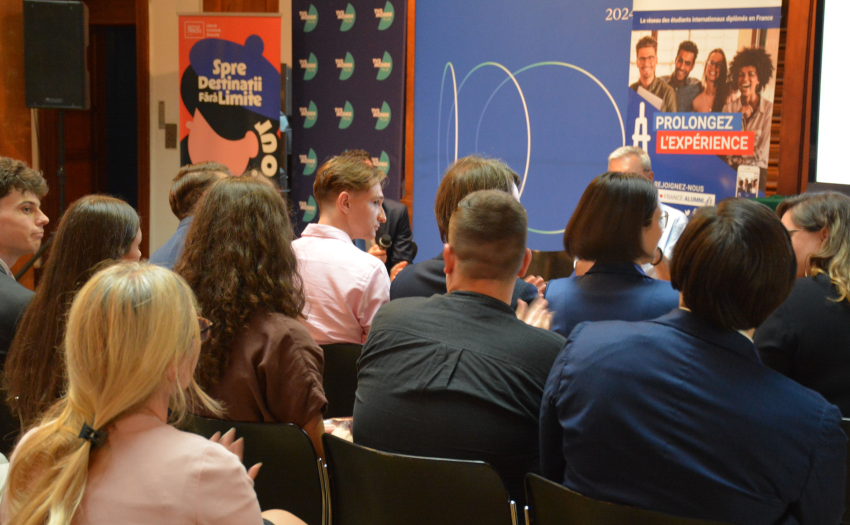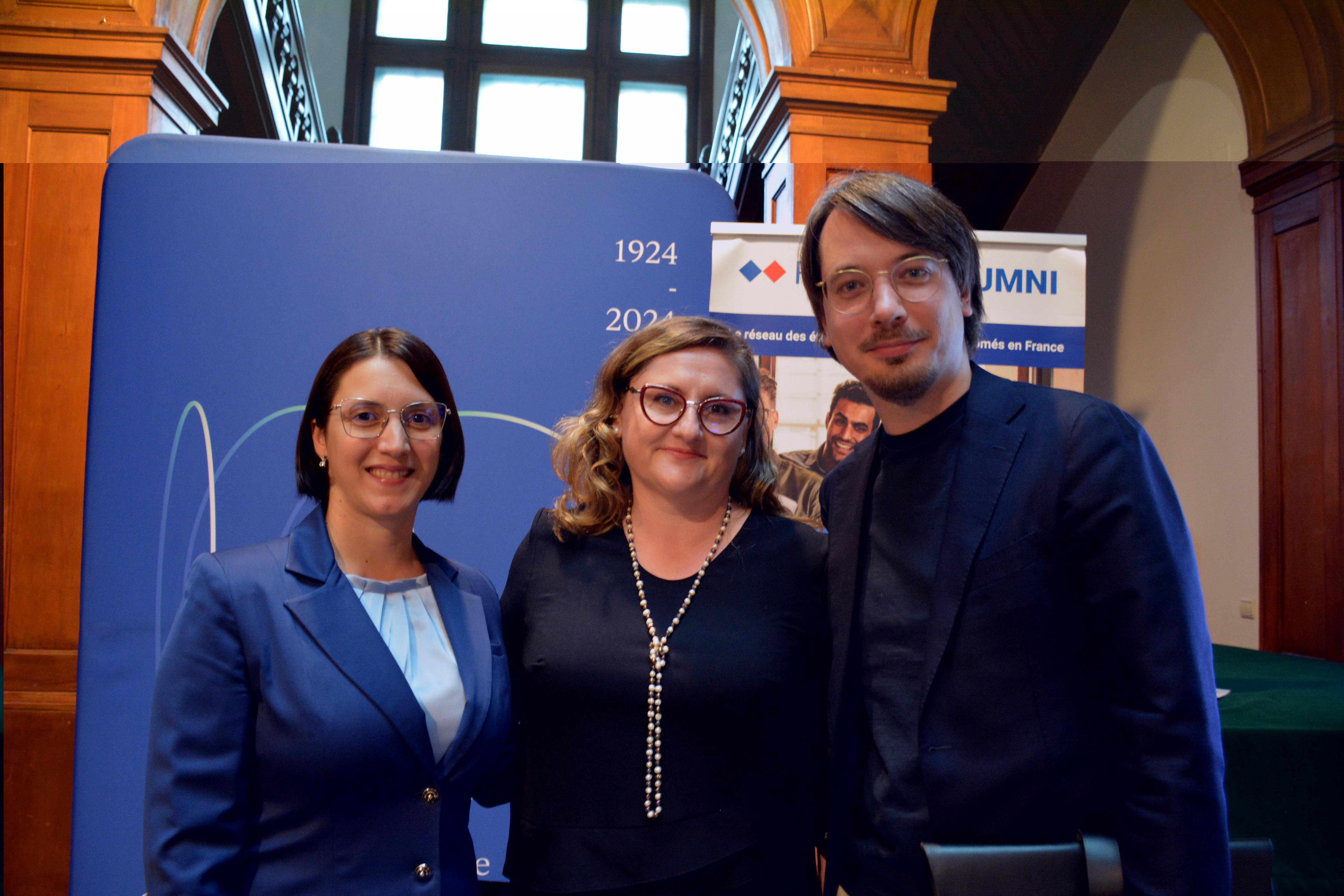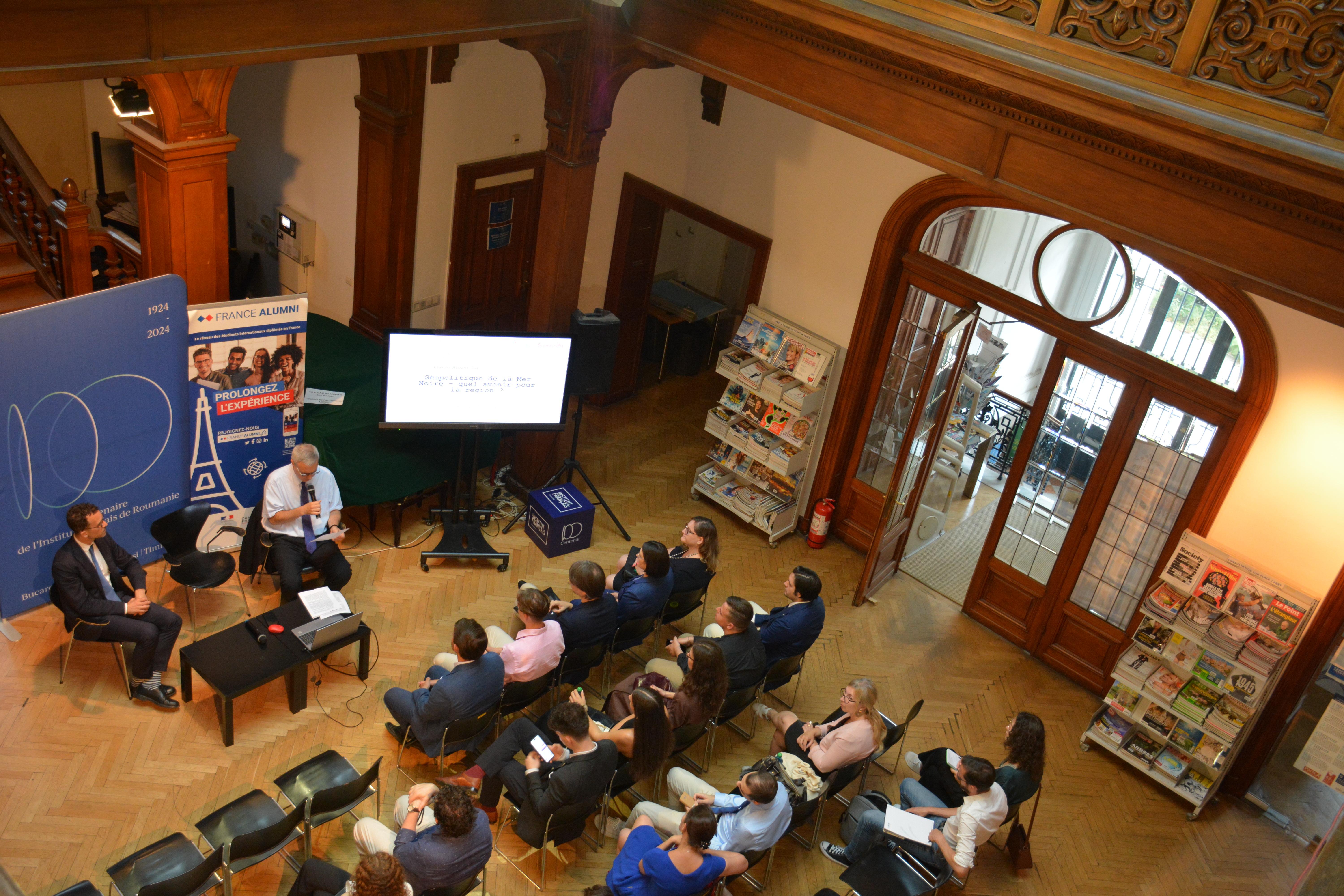
Black Sea geopolitics: between strategic awakening and regional responsibility
On June 30, 2025, the atrium of the Institut Français de Roumanie in Bucharest hosted a bilingual Franco-Romanian conference on a highly topical subject: the Black Sea as a strategic theater, a vector of tensions but also of opportunities. Organized by Sciences Po Alumni Romania as part of France Alumni Day, in partnership with the French Embassy in Romania and the Institut Français, the event brought together diplomats, researchers, alumni and representatives of civil society.
A word of diplomatic openness: the French vision of the Black Sea
The French ambassador to Romania recalled how the war in Ukraine had transformed Western perceptions of the Black Sea. Long considered peripheral, this region is now perceived as a place of war and geopolitical tension, but also of economic interest, notably because of its offshore gas deposits.
France's Black Sea strategy, now formalized, rests on three pillars:
- Enhanced dialogue with Ukraine, the Republic of Moldova and Turkey;
- Support for the reconstruction of Ukraine;
- And a diplomacy of proximity, based on human contact to avoid the escalation of conflicts.
France also defends a lasting peace between Ukraine and Russia, with security guarantees, while continuing to impose sanctions on Moscow. At European level, priority is given to the development of an autonomous defense industry, less dependent on the United States.
Why the Black Sea matters
Speakers stressed that the Black Sea is not only a space of conflict, but also of strategic projection, economic circulation and democratic innovation. Today, it is at the crossroads of multiple challenges:
- Security: military tensions, hybrid warfare, disinformation ;
- Energy: offshore reserves, critical corridors;
- Environmental and migratory;
- Political: fragmentation of alliances, rise of populism.
Intervention highlights
From blind spot to strategic compass
The European Union recently adopted its first Black Sea strategy, but many grey areas remain:
- What are the financing mechanisms?
- What coordination with NATO, largely absent from the document?
- What role for strategic ports like Constanța?
Some point out that past initiatives such as the Black Sea Synergy (2010) have come to nothing. This time, a stronger political will could provide a real strategic anchor.
Romania: from strategic periphery to regional centrality
Romania is often perceived as a vulnerable, even peripheral player. Yet the current situation is forcing it to reposition itself:
- Militarily, it remains under-equipped, unlike Poland;
- Institutionally, it suffers from a lack of trust between citizens and the State;
- Diplomatically, it needs to strengthen ties with its neighbors (Turkey, Bulgaria, Poland) and professionalize its diplomacy;
- Economically, it must capitalize on its strengths (energy, technology, soft power);
- Finally, civil society, which is very dynamic in Romania, is a lever that is often under-exploited. Its role is central to compensating for the absence of strong political leadership.
Cognitive warfare and democratic fragility
The conference also addressed the invisible theater of conflict: cognitive warfare. Disinformation, institutional erosion and political polarization have become weapons. Models such as Sweden and Finland should be followed to strengthen informational resilience and media literacy.
Between strategic alliances and value tensions
How can we cooperate with countries that are allies but democratically fragile? The speakers' answer: clear-sighted pragmatism. Common interests can form the basis of temporary cooperation, but they must be anchored in long-term investment in education, diplomacy and civic alliances.
Discussions also highlighted the need to strengthen relations with Turkey, a key player in access to the Black Sea.
European strategic autonomy still a work in progress
On the question of "Made in Europe" and the reindustrialisation of defence, opinions are divided:
- Some criticize the EU's lack of coordination, leadership and speed in dealing with crises;
- Others call for technology transfers, pooled European funds, and a joint modernization effort.
Otherwise, Europe will remain dependent on the United States, at the risk of never becoming a sovereign strategic player.
Perspectives: alumni, youth and civic networks
The conference highlighted the essential role of university communities and alumni networks:
- Be a driving force in strategic debates;
- Support regional cooperation (particularly with Moldova and Bulgaria);
- Build bridges with European civil society;
- Encourage training, intercultural mediation and civic leadership.
What's next? Towards the next conference in October 2025
A follow-up conference is already in preparation for autumn 2025, in partnership with other alumni associations in Romania, with the following themes: human capital, soft power, and the role of alumni in external action.
Conclusion
Strategy starts with people. It's up to everyone - alumni, researchers, citizens - to help set a course for a more stable, resilient and cooperative Black Sea. The next two years will be decisive. More than ever, we have a collective responsibility.
Thanks
Many thanks to the speakers for the richness of their analyses and the quality of their discussions:
- H.E. Nicolas Warnery, French Ambassador to Romania
- Mr. Julien Chiappone-Lucchesi, Director of the French Institute in Romania
- Prof. Miruna Butnaru-Troncotă, Director of the Center for European Studies, SNSPA
- Dr. Bogdan Ivanel, Founder and CEO Code for Romania / Commit Global / "În primul rând
Our sincere thanks also go to those who contributed to the organization of this conference:
- Ms. Léonie Boussais, Institut Français en Roumanie (co-organizer)
- Ms. Alina-Maria Necula, SciencesPo Alumni (programming)
- Ms. Florence Devaux, SciencesPo Alumni (note-taking)
- Mr. Luca Onica, SciencesPo Alumni (note-taking)
Finally, thanks to all the participants and members of the audience, whose questions, thoughts and commitment greatly enriched the debate.
By Elena Ocenic - President, Sciences Po Alumni Romania
Moderator and co-organizer of the France Alumni Day 2025 - conference
"Geopolitics of the Black Sea: what future for the region?"











No comment
Log in to post comment. Log in.